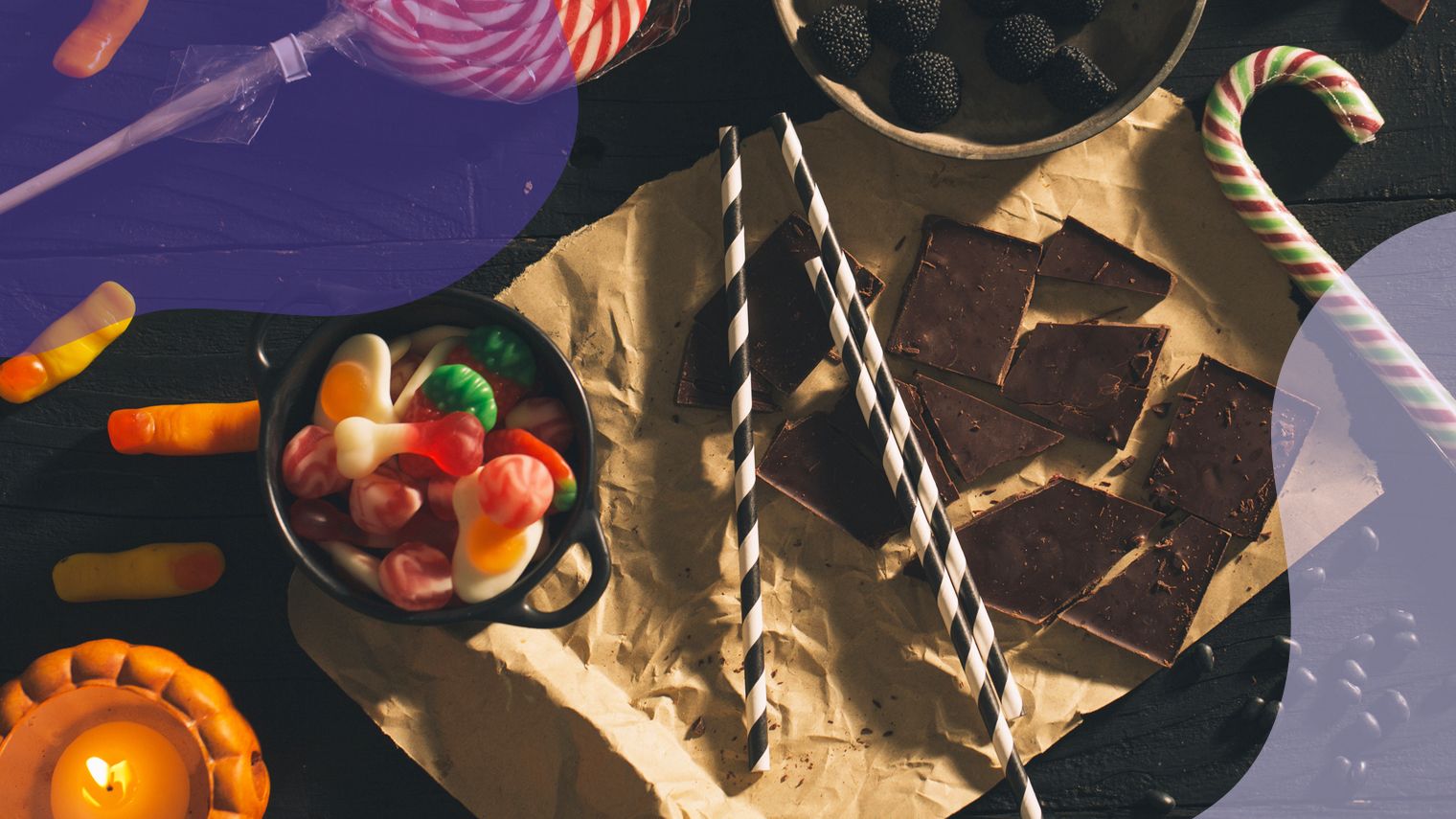Halloween Doesn’t Have to Be Scary for People with IBD
October 20, 2022
Content created for the Bezzy community and sponsored by our partners. Learn More

Photography by Lumina/Stocksy United
You can still indulge in the treats as long as you’re willing to make some healthy swaps to avoid those digestive “tricks.”
Like many holidays, Halloween is all about the treats and indulgences. Eating too much Halloween candy is enough to make people without GI disorders sick. I will never forget the story my dad told of eating too many Reese’s peanut butter cups as a child one Halloween, and how to this day, he cannot combine peanut butter and chocolate.
Those of us with inflammatory bowel disease (IBD), including Crohn’s disease and ulcerative colitis, need to be particularly careful when it comes to these sweets, especially if candy or sugar trigger our GI symptoms.
In my experience, when I am feeling well, I can have a small amount of candy, such as a peanut butter cup or two, but I know that too much refined sugar will leave me feeling bloated and fatigued, and will likely lead to diarrhea. That’s not what I want when I am at a Halloween party, at work, or even at home. As much as I would love an apple cider donut, plus all the chocolate candies and pumpkin treats, I know that the gluten and refined sugar will make me sick, so I generally avoid them.


Should we really be spooked by sugar?
One recent study suggests that consuming a higher amount of ultra-processed foods (those that contain additives, artificial flavorings or colors, or other chemical ingredients) increases the likelihood of developing IBD.
Another study showed that people with Crohn’s disease with mild to moderate symptoms who followed either the Specific Carbohydrate Diet or the Mediterranean diet — both diets low in processed foods — achieved symptomatic remission after just 6 weeks. There aren’t many other studies available involving nutrition and IBD, so it’s not proven whether diet contributes to flares or not.
This being said, many people with IBD will say that certain foods bring on their IBD symptoms. And many find relief adhering to a low FODMAP diet, which is low in certain types of carbohydrates and essentially leaves out most processed foods, including many grains, dairy, and refined sugars. A meta-analysis demonstrated that people whose IBD was in remission — but who still had some gastrointestinal symptoms — benefitted from following a low FODMAP diet. However, this diet also presents certain risks for people with IBD, so always ask your healthcare provider before adopting it.
Even if you don’t adhere to this kind of diet, we know it’s healthier to eat “real” food than processed food, and the available science supports eating more real food and less processed food to improve our bowel symptoms. Why not try real-food alternatives to your favorite Halloween candies and snacks, so you can indulge without feeling sick afterward?
Boo-tiful bites
Here are my top 10 favorite healthy treats for Halloween parties or just enjoying at home:
- Dark chocolate. I like to look for 80% to 90% pure dark chocolate. I only need a couple squares to satisfy my chocolate cravings, and it’s low in sugar.
- Fruit salad. Want to make your fruit salad spooky? Create a jack-o-lantern out of a watermelon with fruit exploding out of its mouth.
- Apple crisp. This dessert, which is compliant with the Specific Carbohydrate Diet (SCD) followed by many people with IBD, is also gluten-free, dairy-free, refined sugar–free, vegan, and paleo-friendly. Every time I’ve brought this to a party, it has been one of the first desserts to go, and people have had a hard time believing it’s so healthy.
- Dark chocolate–covered nuts or berries. They’re just so snackable. Need I say more?
- Homemade chocolate chip cookies. You can never go wrong with this classic, especially when the cookies are gluten-free, dairy-free, and paleo-friendly — and no one would ever know!
- Veggie skeleton. You can get in all your veggies and make it festive with this cute veggie skeleton idea!
- Homemade Snickers bars. Snickers are a Halloween favorite. Unlike the store-bought type, the ones made from this recipe are vegan, made from only “real” foods, and will absolutely satisfy your sweet tooth.
- Homemade Sour Watermelon Gummies. Miss Sour Patch Kids in your diet? Make your own sour watermelon treats with just fresh watermelon, gelatin, lemon juice, and honey (optional).
- Paleo pumpkin bread. Fall is about all the pumpkin, and pumpkin bread is a staple!
- Healthier pre-packaged treats. Consider chocolate and nut butter cups made from organic peanut, cashew, or almond butter. Other options include dark chocolate bars, dark chocolate-covered freeze-dried strawberries, mini granola bars, or even little bags of popcorn.
I can certainly recall many holidays when I decided to eat the gluten and dairy that often make me sick, and the car rides home from those events were miserable. For the most part, it’s not worth it for me to suffer those symptoms when instead, I can make or buy healthier treats that will not bother me — especially with the thousands of creative, delicious, and healthy recipe ideas out there that work with a variety of special diets.
This Halloween, I hope you can indulge a little and feel good while doing it!
Medically reviewed on October 20, 2022


Like the story? React, bookmark, or share below:
Have thoughts or suggestions about this article? Email us at article-feedback@bezzy.com.
About the author